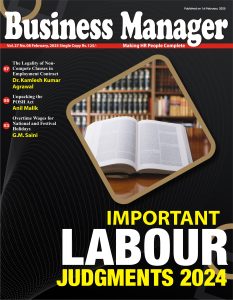On a Friday morning at the Mumbai office of Japanese company, a senior executive; a boomer was eagerly waiting for three of his younger team members to join a video meeting. After waiting for 30 minutes and still no sign of the Gen Z team members, the executive was furious. Their phones were off since they had taken a weekend trip. When one of them did respond by late afternoon, he said quite casually that they had overslept. The senior manager’s immediate annoyance quickly gave way to a more alarming insight: might there be a more serious problem with trust between the younger staff members and their leadership, preventing them from being honest about their whereabouts and the reasons for their tardiness?
“For the first time, many companies are facing a generation whose foundational needs are met, and there’s a perception of entitlement when it comes to workplace policies, processes, and standards,” noted Amit Chincholikar, the global chief human resources officer at Yokohama Off-Highway Tires.
This view is equally echoed by scholars such as...
























